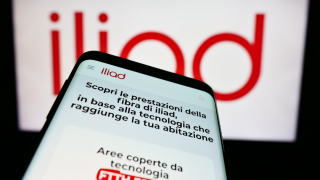|
Croatia’s telecoms sector has been engaged in a parallel struggle, as it has slowly but determinedly escaped from its early state of monopoly. Its incumbent, Hrvatski Telekom, holds a dominant position in the Croatian telecoms industry; however it was privatised in 1999 and the telecoms market was fully liberalised from 2005 as part of the government’s campaign to enter the EU. Alternative operators have since entered the market, along with the creation of a regulator which has taken steps to ensure fair competition. Nevertheless, there has been stiff resistance to privatisation efforts in the country from both political and public levels. Croatia is due to have full EU membership from July 2013. In 1999, Deutsche Telekom acquired a 36% share of Hrvatski Telekom for $850 million and became the majority owner in 2001. T-Hrvatski Telekom is the leading provider of telecommunications services in Croatia, providing over 1.3 million fixed lines, nearly 2.5 million mobile phone lines and 648,000 broadband connections. In 2010, it was the fifth largest company in Croatia by turnover, despite a 1.7% fall in revenues that year.
In 2006, T-Com, a subsidiary of T-Hrvatski Telekom, bought Iskon Internet, the second largest ISP in Croatia. This raised concerns when it increased T-Hrvatski Telekom’s market share in internet services from 67% to 83.9%. However, under anti-trust law in Croatia, a company can be bought without breaking the rules of market freedom if its yearly revenue does not exceed approximately $17 million (100 million kuna).
|
"The regulator has taken steps to ensure fair competition by designating the incumbent as possessing significant market power in a number of markets, a prerequisite to placing regulatory obligations on it to ensure fair competition," reports Henry Lancaster, a researcher for analyst firm BuddeComm. T-Hrvatski Telekom is therefore subject to a range of obligations to ensure fair market competition, including issues surrounding network access, transparency, price control and accounting separation.
There are currently about 21 fixed network licensed operators in Croatia, of which 10 are active. Optima Telekom is the second largest provider of fixed telephony services in Croatia, and was granted a 30-year concession to provide fixed telephone services in 2004. It has licences to provide WiMAX and internet services, and has constructed a nationwide IP network with coverage in over 100 towns and cities. The third fixed services provider, Metronet, was established in 2005 with the aim of providing services to the business market. In Q3 2011, the fixed-telephony market was worth around $163 million, 17% less than in 2010.
|
The mobile sector in Croatia has demonstrated strong growth, and has one of the highest penetration rates in the region. Vipnet was the first private mobile network operator in Croatia, and is wholly owned by Telekom Austria’s mobile unit, Mobilkom Austria. Tele2 Croatia was the last mobile network operator to launch services, depending on a low-price business strategy. "There is as yet only a minor MVNO presence," reports BuddeComm. Mobile operators have recently trialled LTE in the 800MHz, 2.1GHz and 1800MHz bands and expect to launch commercial services later in 2012, while frequencies for 4G services will be auctioned in 2012. Vipnet plans to assign 10% of its investment to LTE to facilitate rural mobile broadband. The satellite and cable TV markets are relatively undeveloped, with cable TV penetration at about 10% and cable broadband penetration at 4%. B.net is Croatia’s largest cable company and was acquired by Telekom Austria in June 2011 for €93 million, joining Vipnet in its portfolio, allowing Vipnet to position itself as a convergent service provider in the Croatian market.
The Croatian market may now be more competitive, but its value has fallen by approximately $346 million in the last three years. The Croatian Bureau of Statistics forecasts that the population of Croatia may fall from 4.48 million in 2011 to 3.1 million by 2051. The tightening market is proving difficult for providers. In 2010, T-Hrvatski Telekom postponed a significant portion of its planned investments in fibre infrastructure to await a more conducive environment for investment, while it cut capital expenditure by 25.8% to approximately $190 million. It also announced in January 2012 that it will be making 450 workers redundant, as "part of the necessary business optimisation process in difficult economic circumstances."
Some relief had been on the horizon. Croatia had implemented a controversial 6% tax on mobile phone services, which the previous administration abolished from 1 January 2012. This tax had hit operators hard; Vipnet recorded a mobile tax expense of €15.2 million in 2010. Despite the relief from carriers when this tax was removed, after only three weeks finance minister Slavko Linic announced that this tax has been reintroduced.




